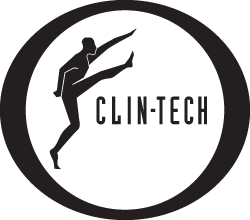Feb 14 , 2019
FOR MARATHONS THE "SUPER COMPENSATION DIET" WORKS BUT IT DOESN'T SUIT EVERYONE - THE DISADVANTAGES ARE NOT AS WELL KNOWN!
Objective - To increase muscle glycogen storage, which will reduce premature exhaustion and provide more sustained energy during, races lasting an 2 hours or more.

Method - Six or seven days before the marathon deplete existing glycogen through prolonged exhaustive exercise, which could include (a 2hr run and or a hard effort 1hr run). Eat only protein or fats (e.g. eggs, chicken, meat,) continue normal water intake. This causes synthesis of extra glycogen storing enzymes in preparation for increased storage capacity. Then 3-4 days before the race start a high carbohydrate diet (spaghetti, bread, honey etc), with plenty of liquid which is stored with the glycogen and avoids dehydration. Also eat bananas, the potassium assists electrolyte balance. (Body weight can be checked daily to ensure adequate water is being consumed).
An alternative method is a slightly lower carbo diet for 1 day with an exhaustive workout followed by 3 days carb loading.
Disadvantages - Since carbohydrate is necessary for recovery after a workout with carbo-depletion, neuro-muscular problems can occur resulting in injuries (the body needs daily small amounts of carbo for the nervous system, red bloods cells, kidneys).
Fatigue is also a factor from carbo-depletion.
Leads to lack of confidence, (which is vital for pre-race psyching).
Causes moods, and susceptibility to viruses or sickness.
Nausea, dizziness, light-headedness, fainting.
Immune System - very susceptible to colds and flu.
Diabetics or pre-diabetics may suffer insulin shock or unconsciousness with the first carbohydrate meal.
Summary - It is vital to experiment during training to see if the super compensation diet is acceptable for your digestion and energy before trying it out before an important race. It can provide prolonged energy in an marathon, but doesn't suit everyone. From my experience more runners are inclined to use it than not to use it.
Water - During intensive training the body weight may vary daily, this is referred to as body water and by recording body weight before breakfast and each day, excessive water/weight deficit may frequently be noticed. This is because water is stored and utilised with muscle and liver glycogen. For 0.5-1kg of weight loss, water should be replaced together with the carbohydrate (glycogen).
The Pre-Race Marathon Meal "Hot Tip" - From my experience working with Kenyan Olympians, the best pre-race meal is pre-cooked soft boiled or steamed rice. This produces the most sustained energy over a long distance.
